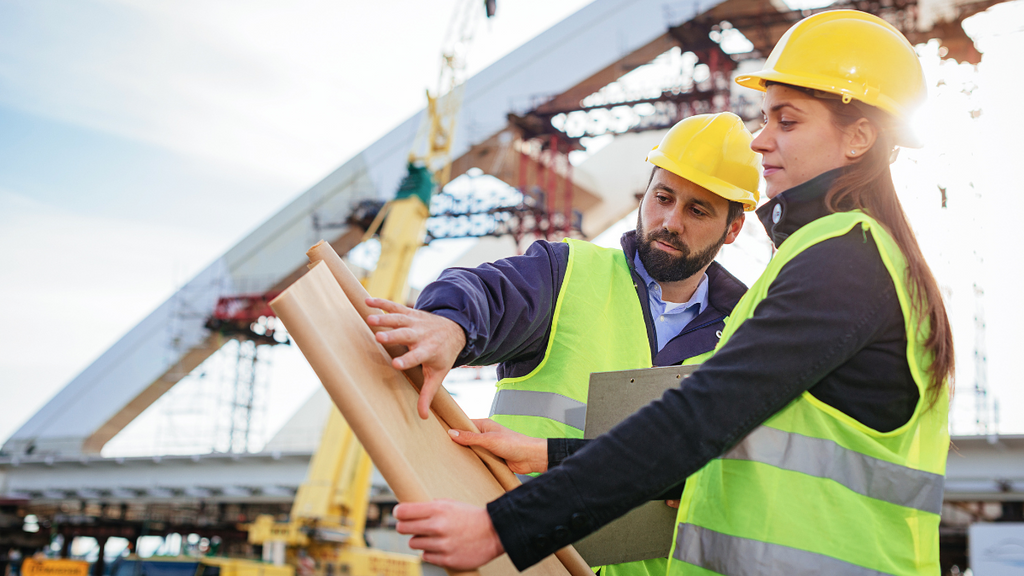Excitement About Geotheta
Excitement About Geotheta
Blog Article
10 Easy Facts About Geotheta Described
Table of ContentsNot known Factual Statements About Geotheta The Greatest Guide To GeothetaHow Geotheta can Save You Time, Stress, and Money.The Basic Principles Of Geotheta Geotheta Fundamentals Explained

They carry out website investigations, collect samples, do lab examinations, and assess information to evaluate the suitability of the ground for building projects - Consulting Engineers. Based upon their findings, geotechnical designers give referrals for structure style, slope security, keeping structures, and mitigation of geotechnical threats. They work together with other specialists, such as designers, structural engineers, and building and construction teams, to make certain that geotechnical factors to consider are integrated right into the general project style and execution
By analyzing the behavior and residential or commercial properties of dirt and rock, they can identify prospective geotechnical dangers such as landslides, soil settlement, or slope instability. Their knowledge aids prevent failings or mishaps that could threaten lives and home. Here are some in-depth duties and responsibilities of a geotechnical engineer: Site Examination: Geotechnical engineers conduct website investigations to gather information on subsurface problems.
They analyze the data to comprehend the properties and behavior of the soil and rock, including their toughness, permeability, compaction qualities, and groundwater problems. Geotechnical Analysis and Design: Geotechnical designers evaluate the data accumulated during site examinations to assess the security and suitability of the site for building tasks. They do geotechnical calculations and modeling to evaluate aspects such as birthing capacity, settlement, incline stability, lateral earth stress, and groundwater flow.
The Definitive Guide for Geotheta
Foundation Design: Geotechnical designers play an important function in designing structures that can securely sustain the designated structure. They evaluate the soil conditions and load needs to determine the ideal structure kind, such as superficial foundations (e.g., footings), deep foundations (e.g (https://dc-state.cataloxy.us/firms/dc-anacostia/geotheta.com.htm)., piles), or specialized techniques like dirt enhancement. They think about factors such as settlement limitations, birthing capacity, and soil-structure communication to establish ideal structure designs
They evaluate building and construction strategies, screen site activities, and carry out field inspections to verify that the style suggestions are followed. If unforeseen geotechnical concerns arise, they analyze the scenario and give suggestions for removal or modifications to the design. Threat Assessment and Reduction: Geotechnical designers evaluate geotechnical risks and dangers connected with the project site, such as landslides, liquefaction, or soil erosion.

Collaboration and Communication: Geotechnical designers work closely with other experts involved in a task, such as engineers, architectural designers, and construction groups. Reliable interaction and collaboration are important to integrate geotechnical factors to consider into the total task style and construction process. Geotechnical designers offer technological knowledge, response queries, and make sure that geotechnical needs are fulfilled.
The smart Trick of Geotheta That Nobody is Talking About
Here are some sorts of geotechnical engineers: Foundation Designer: Foundation engineers concentrate on making and assessing structures for structures. They assess the dirt problems, tons demands, and website qualities to identify one of the most suitable foundation type and layout, such as shallow structures, deep structures, or specialized methods like stack foundations.
They examine the aspects affecting slope security, such as soil residential or commercial properties, groundwater conditions, and slope geometry, and establish strategies to prevent incline failures and mitigate dangers. Quake Designer: Earthquake designers focus on evaluating and developing structures to stand up to seismic forces. They analyze the seismic risk of a site, evaluate dirt liquefaction capacity, and create seismic design requirements to make certain the safety and resilience of structures during earthquakes.
They do field screening, accumulate examples, and evaluate the accumulated data to identify the dirt residential or commercial properties, geologic developments, and groundwater conditions at a site. Geotechnical Instrumentation Engineer: Geotechnical instrumentation engineers concentrate on tracking and determining the behavior of dirt, rock, and structures. They mount and keep instrumentation systems that keep an eye on aspects such as dirt negotiation, groundwater degrees, incline movements, and architectural variations to assess performance and offer early cautions of potential problems.
Not known Facts About Geotheta
They perform examinations such as triaxial tests, debt consolidation examinations, straight shear tests, and leaks in the structure tests to collect information for geotechnical evaluation and design. Geosynthetics Engineer: Geosynthetics engineers concentrate on the design and application of geosynthetic materials, such as geotextiles, geogrids, and geomembranes. They use these products to improve dirt stability, reinforce inclines, give drainage options, and control disintegration.
They tend to be investigative people, which means they're intellectual, reflective, and investigative. They are interested, systematic, logical, analytical, and logical. Some of them are likewise social, suggesting they're kind, charitable, cooperative, patient, caring, helpful, understanding, sensible, important link and pleasant - Geo Tech Engineering.
In the workplace setting, geotechnical engineers use specialized software tools to perform estimations, produce layouts, and assess information. They prepare reports, testimonial project specs, connect with clients and staff member, and coordinate task activities. The workplace setup offers a favorable setting for study, evaluation, and collaboration with various other specialists included in the job.
3 Easy Facts About Geotheta Described
They frequently go to project websites to conduct website examinations, assess geotechnical conditions, and gather information for analysis. These brows through entail taking a trip to different areas, sometimes in remote or difficult terrains. Geotechnical engineers may execute dirt sampling, conduct examinations, and monitor building tasks to make sure that the geotechnical aspects of the task are being applied correctly.
Geotechnical designers likewise function in specialized geotechnical labs. Geotechnical lab engineers work extensively in these atmospheres, taking care of screening tools, running tools, and recording data.
Report this page